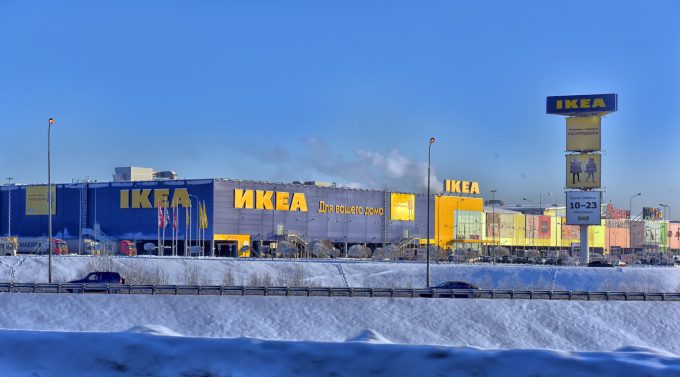An 'across-the-spectrum rethink' needed as firms eye use of AI in procurement
The disparity between the relentless hype and its present limitations has left most people sceptical ...
LINE: EXPENSES AND OPERATING LEVERAGELINE: PIPELINE OF DEALS LINE: DEMAND PATTERNS LINE: LANDSCAPELINE: CONF CALL STARTSDSV: UNTOUCHABLEEXPD: NOT AS BULLISH AS PREVIOUSLYFWRD: SPECULATIVE RALLY MAERSK: INTEGRATED LOGISTICS WIN MAERSK: TRUMP TRADEKNIN: THE SLIDELINE: DEBUT AAPL: ASIA CAPEXDHL: THE HANGOVERXPO: ELECTION DAY RALLY BA: STRIKE OVER GXO: SHEIN AND TEMU IMPACT GXO: PAYING DOWN DEBT AND ORGANIC GROWTH
LINE: EXPENSES AND OPERATING LEVERAGELINE: PIPELINE OF DEALS LINE: DEMAND PATTERNS LINE: LANDSCAPELINE: CONF CALL STARTSDSV: UNTOUCHABLEEXPD: NOT AS BULLISH AS PREVIOUSLYFWRD: SPECULATIVE RALLY MAERSK: INTEGRATED LOGISTICS WIN MAERSK: TRUMP TRADEKNIN: THE SLIDELINE: DEBUT AAPL: ASIA CAPEXDHL: THE HANGOVERXPO: ELECTION DAY RALLY BA: STRIKE OVER GXO: SHEIN AND TEMU IMPACT GXO: PAYING DOWN DEBT AND ORGANIC GROWTH

Nine large shippers have joined the Aspen Institute’s initiative to drive maritime decarbonisation with ambitious targets, but none of the members of cargo owners for Zero Emission Vessels (coZEV) is a carrier or fuel producer.
The companies that have joined include Michelin, Amazon, Ikea, Unilever, clothing company Patagonia and Inditex, which includes a number of brands such as Zara, and they have pledged to collaborate to transition all their ocean freight to zero-carbon vessels by 2040.
Chicago charity the Aspen Institute launched the Energy and Environment Program and the Shipping Decarbonization Initiative to drive collaboration and innovation, and coZEV will work alongside these projects, according to Elisabeth Munck af Rosenschöld, Ikea’s sustainability manager supply chain operations.
She told The Loadstar: “We need to work across the value chain, because it is not possible for one company to achieve these [climate] targets.”
She said the Aspen Institute was facilitating the collaboration “that will help to develop the innovative technologies needed to meet the Paris Agreement target of maintaining temperature increases to within the 1.5˚C”.
According to Ms Munck af Rosenschöld, Ikea joined coZEV because it “chimes with the company’s goals of promoting healthy and sustainable living, fairness and equality, and of meeting climate change requirements”.
The company is looking to reduce its overall emissions by 70% by 2030, compared with a 2017 baseline. It has tested biofuels and shifted 45% of its transport to intermodal solutions globally, and 50% in Europe.
Detractors of these targets who say Ikea must do more, were welcome, said Ms Munck af Rosenschöld.
“Good that they [environmentalists, including Ship It Zero] have put a spotlight on this issue. We believe our targets are ambitious, realistic and in line with the Paris targets. In coming together with others, we hope to instill clarity confidence in the market.”
Comment on this article